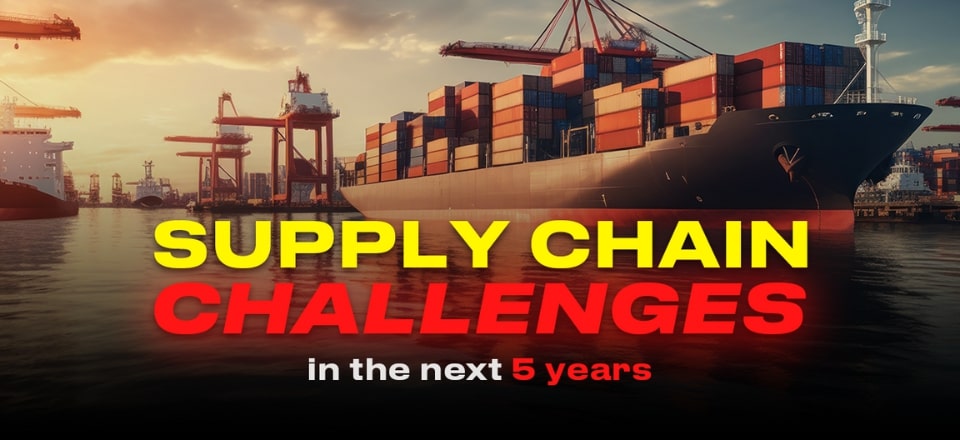The supply chain has seen remarkable growth and evolution over the years, continuously improving to meet the demands of a dynamic global market. Have you ever wondered how today’s rapid innovations and changes are shaping the future of supply chain management? What challenges could the industry face in the next five years?
Join us as we explore these questions with supply chain expert Maria Villablanca, who will share insights into the anticipated obstacles and opportunities that lie ahead for the industry.
In a recent discussion, supply chain expert Maria Villa Blanca shared her insights on the key supply chain challenges we can expect over the next five years. Here’s a detailed look at the main points covered in our conversation.
The Impact of Geopolitical Risks
Rob: So this week, we’re going to do a little bit of supply chain, crystal ball gazing and we’re going to look at what are some of the big challenges coming up over the next five years in supply chain. And with me this week to discuss that is Maria Villa Blanca coming right up.
Maria: I was just going to say, you turn on the news and you see that people are talking about supply chain all over the place. There’s some obvious ones, right? So geopolitical risk is probably the biggest one. Now, what does that mean? It means that if there’s a war in the Middle East, ships can’t get through the Suez Canal. They have to go down through a different route. So that’s going to add more time, more cost to the supply chain. It’s things like if there’s a war somewhere, you can’t get your raw materials from a certain place, you’ve got to find another place to source your raw materials. That again has an impact on the supply chain. So I think the first one is geopolitical risk.
Navigating Regulatory Compliance
Maria: The second one is regulation and regulatory compliance. There’s been talk for a long time about the different types of carbon capture, carbon emissions goals, the COP 28 had different goals. So there’s so many different types of regulations that are coming into place. They’re going to mean that supply chains are going to be under the magnifying glass of governments to be more transparent. Now, what does that mean? It means that they’re going to have to delve deeper within their supply chains to understand their suppliers and their supplier suppliers and see where the risks are there from a sustainability perspective. So having an understanding of data transparency, visibility within your supply chain is also one of the key things that are going to have to be focused on this year. So whether it’s control risk or to help with sustainability initiatives.
Embracing Generative AI
Rob: Where do you see the main use of that?
Maria: Generative AI in crunching data, in being able to assess different types of routes, for example, different types of decision making, scenario planning, in forecasting, in even the way that people do their day-to-day jobs certain one day and repetitive tasks will be given to generative AI which will free up people, hopefully, to make better decisions about things. So I think generative AI is coming. It’s here! And I know, I myself already used generative AI for so many different things, so it’s changed the way that I work and I can only imagine that that’s the case for a lot of people.
Navigating these supply chain challenges will require adaptability, transparency, and a willingness to integrate advanced technologies like generative AI. As Maria Villa Blanca emphasized, the human element remains critical in managing and optimizing these evolving supply chains.
Watch the video above for more detailed information of the topic!
Related articles on this topic have appeared throughout our website, check them out:
- 9 Steps to Follow When Preparing for Supply Chain Project Management
- No Supply Chain Strategy? Here’s How to Develop One
- The 3 Pillars of Supply Chain Management (And Why Their Alignment Matters)
- How Artificial Intelligence is Boosting Supply Chain Performance
- You and Your Supply Chain Career
Editor’s Note: The content of this post was originally published on Logistics Bureau’s website dated April 03, 2024, under the title “Supply Chain Challenges in the Next 5 Years with Maria Villablanca“


